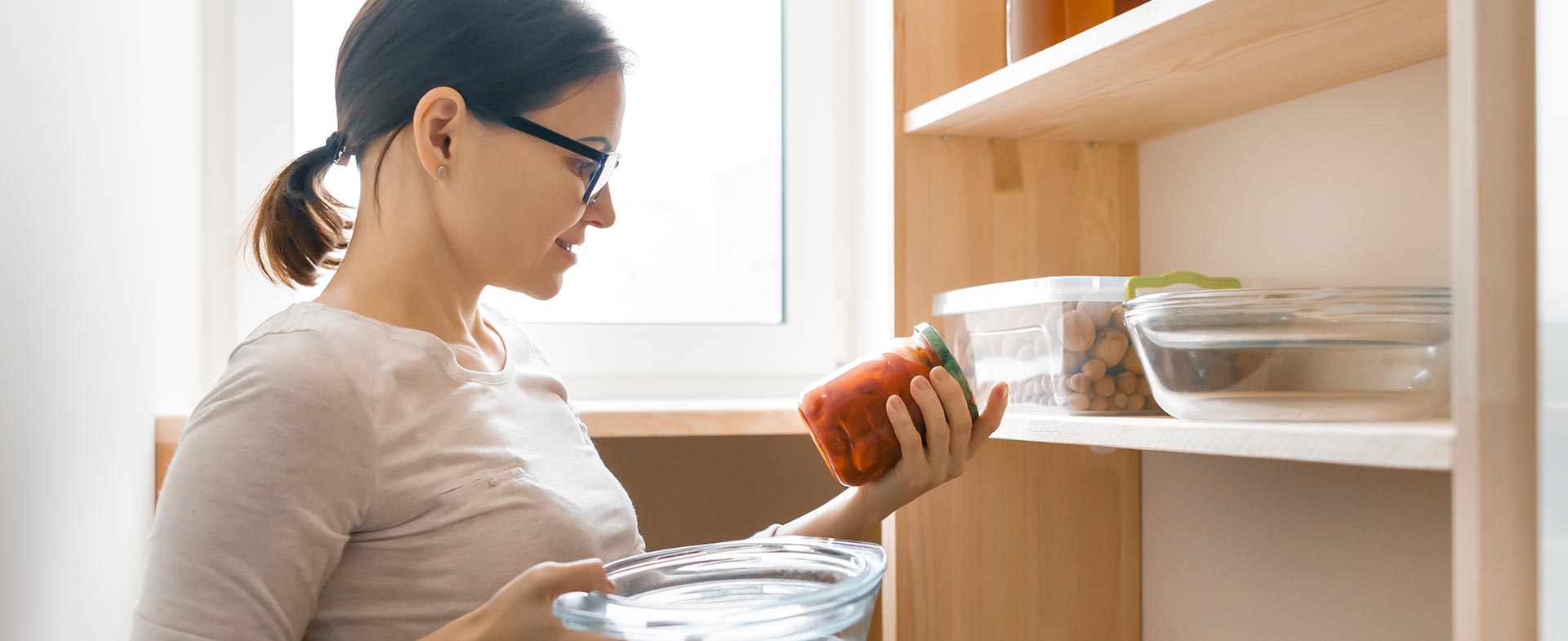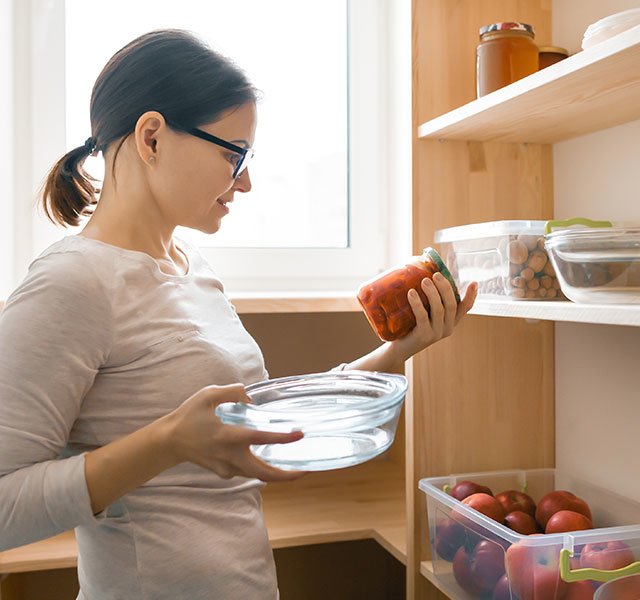According to the United State Department of Agriculture (USDA), an average family of four wastes approximately $1,500 worth of food every year. In addition to losing money, that also negatively impacts our natural resources. A lot of energy goes into food production, food transportation and food storage including labor, natural gases, electricity and water.
By minimizing how much food your family wastes, you can save money and help the environment. It just takes a few extra minutes to plan.
Planning Your Trip To The Store
The novel coronavirus outbreak has us practicing social distancing. So, the first question you should ask yourself before heading to the store is – do I need to go?
Many people are quick to assume that they don’t have what they need. How many times have you purchased the same thing multiple times because you forgot to check? Some extra shelf-stable food staples are important to keep stocked. But purchasing foods you don’t need can lead to food waste. Consider using these strategies before heading out to the grocery store:
- Shop your fridge and pantry first. Don’t assume you don’t have an ingredient. Check to make sure first. You might even find an ingredient that could be swapped out for the one you were looking for – like quinoa in place of rice or dried beans instead of canned.
- Understanding sell-by/use by dates. Many people assume you can’t use a product after it’s sell-by date. This isn’t true. These dates are used for quality, not safety. If you have a product that slips past this date, try to use it within the week.
- Keep a list of what you need. As food items you use are consumed, add them to your list. That way, you’ll have a grocery list started for when you do go to the store, and you won’t forget to buy the foods you need.
- Plan your meals. One great way to cut down on how much you buy is to plan out what you want to eat for the week. And not just for dinner. Think about breakfast, lunch and snacks too. Try to plan recipes that may use similar ingredients, so you aren’t buying an ingredient for only one dish.
- Only buy what you need. Grocery stores are designed to let your eyes wander to items you might not need. When you get to the store, stick to the game plan and only buy what is on your list. This will not only save you money, but help you avoid unnecessary snacking or wasting food later in the week.
How To Make The Most Of Your Food
Once you have your groceries, have a plan for how to use them or store them for later. Learning how to properly keep foods fresh can help you avoid rotten greens that get pushed to the back of the fridge or a stray container of something that is no longer recognizable.
- Organize, organize, organize. A well-organized pantry or fridge can not only make it easier to find things, but it can also help prevent food from going bad. As you buy new items, place them behind the items that haven’t been used up yet. This prevents older groceries from going bad or accidentally having more than one gallon of milk open at a time! If you don’t have room for the new groceries, it might be time to clean out your stock.
- Prep for plan-overs, not leftovers. Prepping food strategically can save extra work later. If making rice for a stir-fry, make extra for a rice soup later in the week. When baking chicken, bake extra for a casserole, sandwich or salad the next day.
- Store food correctly. Some items, like potatoes and onions, keep best in cool dry spaces, while bananas should be stored separate from the rest of your produce. Also, think about how you plan on using food before putting it away. If you don’t have an immediate need for something, consider freezing it. Portion meat before you freeze to make meal prep easy later. Package meals individually to make it easier to grab and reheat. Remember to label and date everything.
- Get creative with extra food. Combine miscellaneous fruits together for a fruit salad, in a smoothie or for added flavor to your water. Add spare veggies to soups, casseroles or stir fries. Remember that sometimes we throw out bits of food that have other uses. The skin of citrus fruits can be used to add fresh flavors to a dish. Carrot and celery tops can be added to soup or stock.
When in doubt, a great way to put extra food to good use is to donate it to a local food bank or shelter. Instead of letting things go bad because you bought too much, get it to a place where it will go to someone in need.
For up-to-date information about Henry Ford Health’s response to the coronavirus, visit henryford.com/coronavirus.
Bethany Thayer, MS, RDN, is the director of the Henry Ford Center for Health Promotion and Disease Prevention. Learn more about Bethany.



